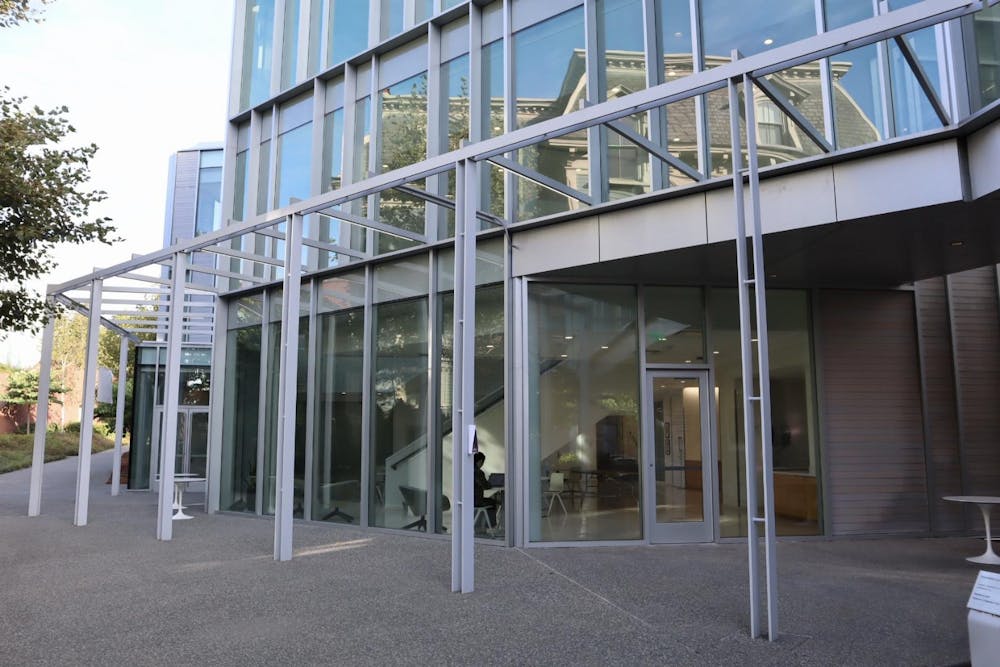For alums of the Institute at Brown for Environment and Society, one key issue hits close to home as Election Day approaches: climate change.
On Saturday, IBES hosted an alum panel to discuss climate innovation at the local, state and federal levels. At the event, the second in a two-part series, alums shared their professional experiences as well as what they believe is at stake for climate action in the 2024 election.
Megan Hall ’04 MPH’15 moderated the panel, titled “Climate Action and the 2024 Election: Brown Alumni Innovating at Local, State and Federal Levels,” with an introduction from IBES Director Kim Cobb.
Panelists discussed the recent shift toward climate awareness in this campaign season. Michelle Diane Hernandez ’15, states director at Climate Power, a strategic communications organization, pointed to the higher costs associated with climate, particularly in recent months with severe natural disasters impacting more individuals and costing billions of dollars.
“Between Milton and Helene, those hurricanes were easily several 10s of billions of dollars,” Diane Hernandez said. “And it’s not theoretical money, (these are) folks’ homes who have been lost.”
But oftentimes these issues are hard to address, according to CEO and Founder of Capital Gold Fund Andrew Posner ’09. This isn’t because of technological and policy issues, he said; rather, many people don’t listen to the facts.
“A public that doesn’t believe in science will never back everything we need to do,” he said.
Ari Matusiak ’99, founder and CEO of Rewiring America, a nonprofit focused on electricity, said that many people do not actually understand how they combat climate change.
“Climate heroism comes from the kitchen-table decisions their families can make,” he said.
Kitchen-table decisions are family decisions, such as switching to rooftop solar panels, buying electric vehicles, cooking more carbon offset meals, and knowing where their power comes from. These choices are the most important to creating change, Matusiak said.
Rhetoric was also a common element to this event, with many of the panelists noting how significant the phrasing of climate action is to mobilize communities, corporations and legislation.
Rhetoric can also be inhibitive, according to Cobb.
“There are many people who see the opportunities for climate action (but) are allergic to the phrase ‘climate change’ because it has been so politicized as a term,” she said.
“It’s something I think about a lot, who the audience is to certain rhetoric and who you’re trying to influence,” said Marlena Brown ’25, who concentrates in environmental studies.
Fossil Fuels Policy Advocate at the Natural Resources Defense Council Zanagee Artis ’22 and Hernandez said in an interview with The Herald that there would be a stark difference in climate policy going forward depending on the winner of the upcoming election.
“You would either have an administration that wants to build off of the work that’s been done over the last four years (or) you would have an administration that would try to dismantle and repeal the efforts that have been done,” Hernandez said.

Amber Marcus-Blank is a senior staff writer covering undergraduate student life. She is a sophomore from outside of Boston studying Political Science and Public Health on the pre-law track. She is interested in working in politics and journalism in the future and enjoys playing soccer and making playlists in her free time.





